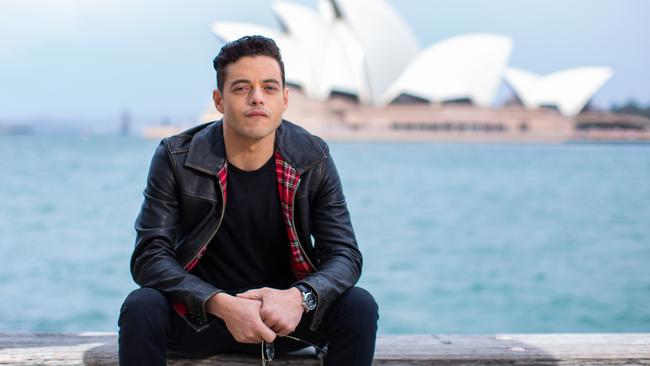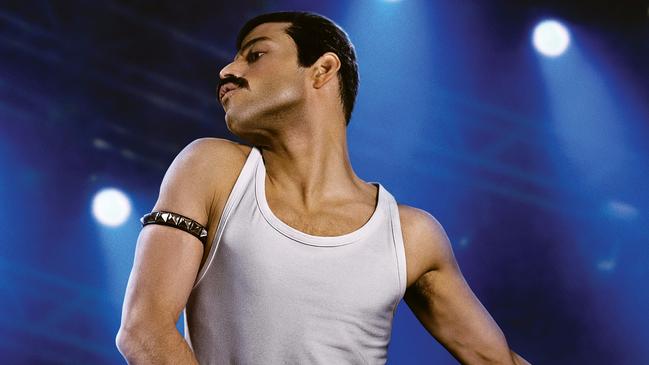Bohemian Rhapsody: Rami Malek on playing Freddie Mercury
Rami Malek reveals he had no wish to mimic Queen’s flamboyant frontman.

When Rami Malek was cast as Freddie Mercury in the Queen biopic Bohemian Rhapsody, the actor had no doubt about one of the challenges he would face. “He’s extraordinary, he’s arguably the greatest frontman of all time, he’s the closest thing to a rock deity,” Malek says. “But I couldn’t approach him that way, it would be so futile. It put me on the back foot immediately.”
What he needed to do, he says, was to figure out “the conflict and complication” inside Mercury that the singer found a way to harness and express on stage. One of the keys was “the immigrant story”. Mercury was born Farrokh Bulsara in 1946 in Zanzibar, now part of Tanzania. His Parsi parents sent him to a British boarding school in India, where he started to learn music, acquire what Malek calls “a royal, colonial English accent”, and to call himself Freddie.
In England, however, as Bohemian Rhapsody shows, he found himself the subject of racial abuse. “I thought about the guy named Farrokh Bulsara. I thought, ‘You can understand this human being’s journey,’ ” Malek says. “Every time I thought about what made him so special on stage, I kept on coming back to this fire, this need to prove himself, this need to overcome obstacles.

“Enough having that immigrant story, but in a world where homosexuality — anything other than heterosexuality — was so stigmatised, the one place to feel at home and empowered and almost invincible, and to share that feeling with so many others, was on stage.”
One of Queen’s most famous performances, at Live Aid at Wembley in 1985, frames the film. It was, Malek says, “the only sequence we really wanted to get move-for-move perfect”, although Malek’s quick, exuberant jump as he heads for the stage is a spontaneous addition. “I just did it on the day, and it worked. It’s something I tend to do before a take and it lived in there, and that’s something I always wanted to make sure we didn’t lose.”
Malek convincingly inhabits the figure of the performer. Yet, he says, “I never wanted to imitate or mimic him, and I never wanted to lose myself entirely.”
To discover “the Freddie that I can really believe in”, he pored over interviews — “some are more candid than others, some are very reserved” — read interpretations, talked to people close to Mercury. In the end, he went to another source. “I realised, if he’s putting down these highly emotional lyrics, they’re coming from his soul: that’s his diary. I thought, ‘You fool, it’s been right there in front of you.’ ” Loneliness and the need for love are the heart of the songs, Malek says.
When Mercury was questioned about his sexuality, a mixture of candour and reservation once again came into play. “He wasn’t holding things back, he just didn’t need to spell everything out for everybody. The guy never allowed himself to be labelled.
“And you see it on stage: he speaks to every dreamer, outsider, rule-breaker. In his music he says you don’t have to be slotted into any traditional expectation or label, or any untraditional label for that matter. We can exist as exactly who we want to be.”
Bohemian Rhapsody opens on November 1.



To join the conversation, please log in. Don't have an account? Register
Join the conversation, you are commenting as Logout